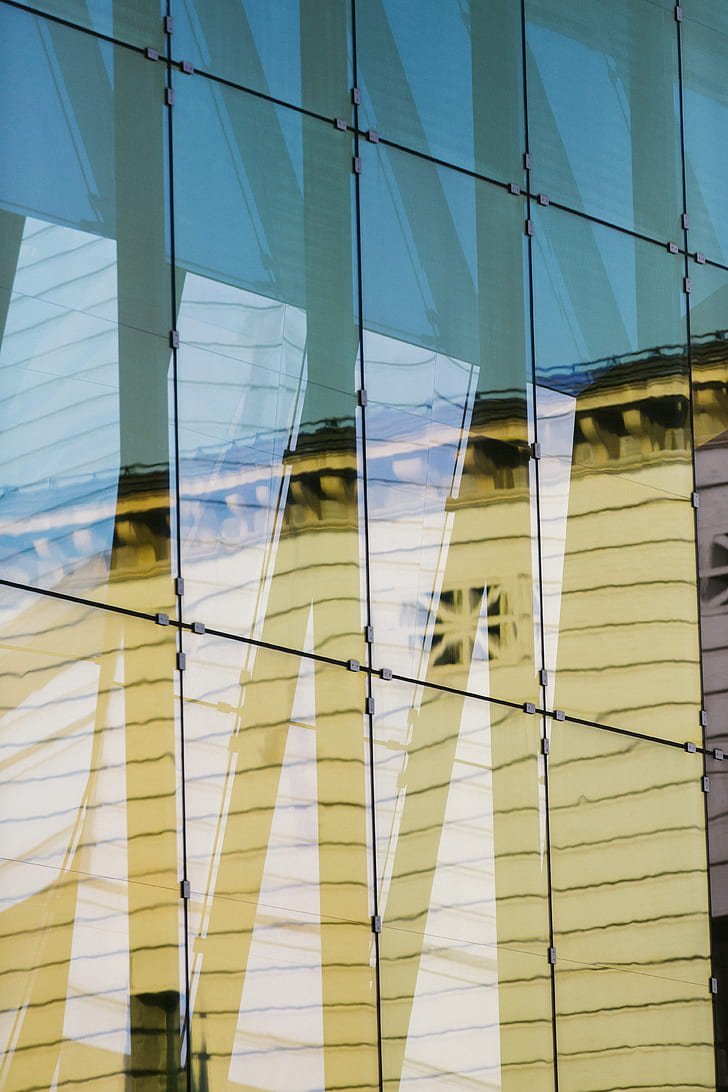What Happens When Glass Breaks?
Do you know what happens with glass when it breaks, and why?
“I love the sound of breaking glass” by Nick Lowe was popular in the 70s. It reminds me that there is no sound quite like the sound of “Breaking Glass.” That distinctive crash and splintering sound when an object projected through the air suddenly makes an impact with glass. Or the sound when a glass of wine accidentally falls off a table and hits with a crash sound onto the hardwood floor. The sound of glass breaking can be quite mesmerizing— but what, exactly, is happening when glass breaks? Builders use various types of glass in doors, windows, relites, and transoms, including annealed glass, heat-strengthened glass, tempered glass, and laminated glass.
We will explore each of them, looking at their properties and what happens when they break.
Float Glass
When we pour molten glass over a bath of liquid tin, it floats on the surface and spreads out completely evenly because the glass is lighter than the tin.
Annealed Glass
Annealed Glass is one type of float glass. Its manufacturing process involves slowly cooling the glass during fabrication. Slowly cooling the molten glass relieves internal stress and increases the glass’s strength and durability. When annealed glass breaks, it tends to break into large, sharp shards, which can result in extensive damage and injuries.
Heat Strengthened Glass
Heat-strengthened glass is another type of float Glass produced by slowly cooling the molten glass, which induces a high level of compression on the glass surface, ranging from 6,000 to 9,000 psi. The result is a tougher glass, which is harder to break. When it does break, it has the same characteristics as annealed glass, which is large, sharp shards. Heat-strengthened glass does not qualify as safety glass even though it is tougher than annealed glass because it breaks into large pieces. The toughened pieces of glass pose a real threat of lacerations and other serious injuries to people.
Tempered Glass
Tempered glass is another type of float glass. The same ]manufacturing process produces both tempered glass and heat-strengthened glass. The difference is the cooling period. By rapidly quenching the surface of tempered glass, it induces both compression and tension on the surface, resulting in glass strength ranging from 11,000 to 20,000 psi. This stronger glass is safety glass because when it breaks, it does so in tiny, even beads that do not have sharp edges.
Laminated Glass
Laminated or safety glass combines with one or more polyvinyl butyral (PVB) layers sandwiched in between. This glass is tough to break because of the layering process, and adhering the glass to PVB holds the glass fragments together. This results in less harm to people in the event of breakage.
Window Films Safety benefits
Safety window film helps retain the shards if the glass breaks in both annealed and heat-strengthened glass. The safety film reduces the possibility of splintering and the potential of large fragments causing physical damage to nearby people or pets.
Safety glazing codes are regulations established in building standards to ensure that certain areas of a structure use specially designed glass to minimize the risk of injury should breakage occur. When there are areas of glazing that do not meet the requirements for standard or code, applying safety window film as a retrofit over the existing glass may improve and protect occupants from harm.
Window Films Security Benefits
When people purposefully attempt to break glass for nefarious reasons such as burglary or vandalism. Security window film is an effective deterrent to stop people from forcing their way into the space through the window or glass door. This method involves using a thicker window film and then mechanically fixing the film to the glass frame with an industrial-strength sealant.
For us in the window film industry, knowing the type of glass and understanding how it reacts under pressure and duress is crucial. To best serve our customers, we give them the most accurate information to make informed choices about the best product to suit their needs.
If you have a building project and need to get your existing glass up to code or have annealed glass or heat-strengthened glass you need to protect, contact us; we would be happy to help!

